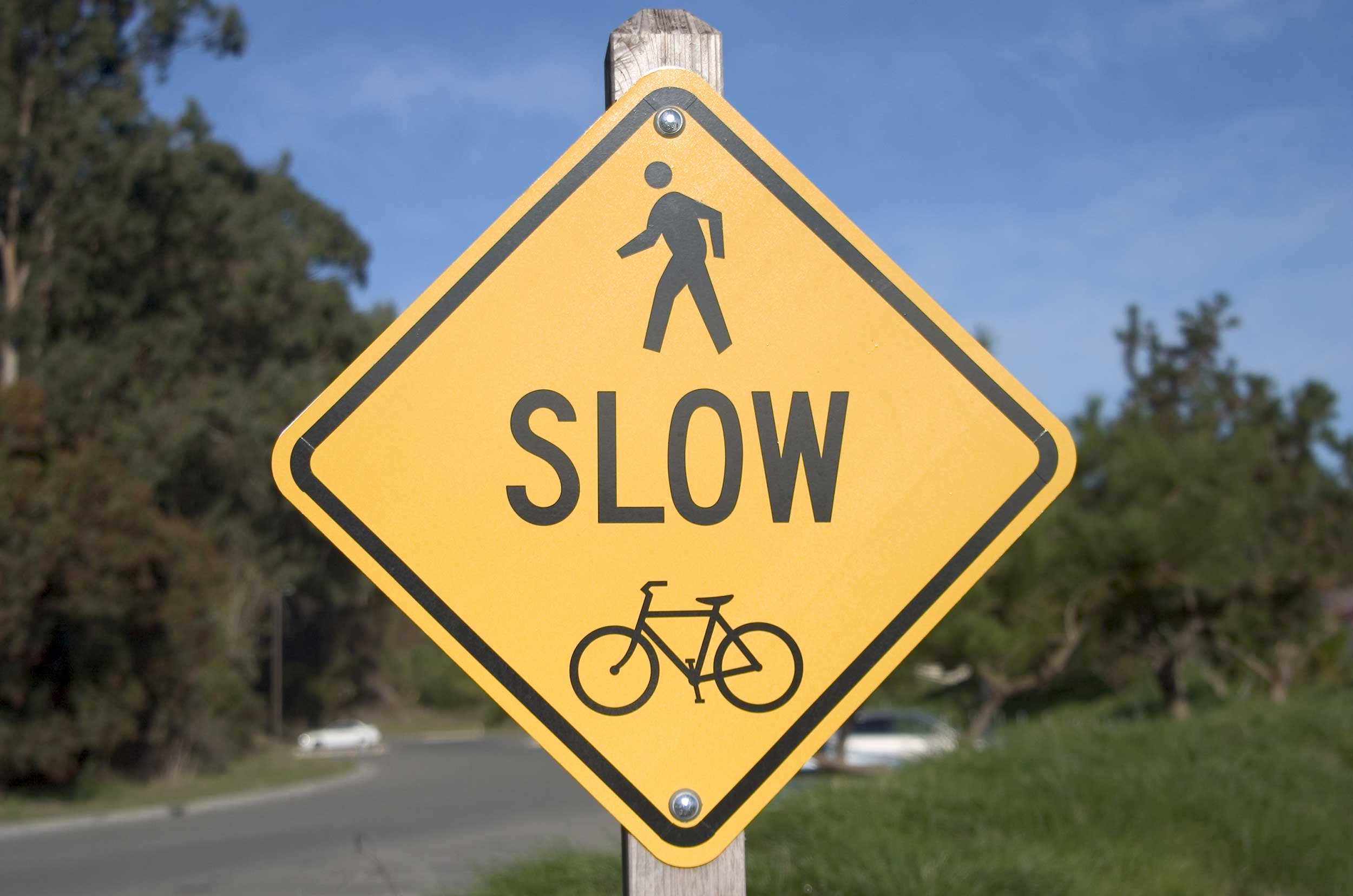Hey team, and welcome to the first-ever Leap Day edition of one5c! It’s a rare treat to have bonus time, let alone a whole bonus day. So I wanted to invite you all to take these extra 1,440 minutes to ask yourselves: What’s the rush? In our everyday lives, the faster we move, the more we tend to emit. Whenever we’re able, collectively slowing the heck down can add up to serious emissions savings.
What follows are five ways that metering our urge to sprint can make a difference. Share ’em with the overscheduled people in your life. —Corinne
5 easy ways to go slow
By Corinne Iozzio

Line-dry your laundry
Clothes dryers are one of a home’s biggest energy hogs. Sunshine and breezes? Those are free, which makes line-drying clothes a massive potential climate win. We get that it’s not always realistic to hang-dry a family’s worth of linens; time, weather, and space constraints make it impossible for some folks. But total adoption isn’t even the point. Get this: If 10% of households in the U.S. did this with one load once a week, it’d be like taking 12 million cars off the road.
Mind the speedometer
Whinging about the cost of gas is The American Way, but it’s actually in each driver’s power to control how much they fork over on petrol. The not-so-secret formula: driving slower. No matter the car you drive (internal-combustion, hybrid, or EV), going faster burns more juice. According to data crunched at Oak Ridge National Laboratory, most vehicles will lose 12%-16% of their fuel economy for every 10-mph bump in speed between 50 and 80 mph. What’s that mean? Keeping it locked at 55 on the highway can save 47 gallons per car per year—or about 418 kilos of greenhouse gas emissions.
Make some sun tea
Here’s one that you can start now and enjoy with dinner tonight: Brew some sun tea. Americans sip around 3.8 billion gallons of iced tea a year, and it’s a fair guess that a good portion of that is brewed on the stovetop—either gas or electric. By that method, you could be enjoying some crisp refreshment 30 minutes from now for the low-low price of some excess greenhouse gas emissions. Give the sun a couple hours to do its thing, though, and you’ll have burned zero excess energy. By our cocktail-napkin math, if 10% of our national iced tea intake were made this way, it’s like canceling out the annual emissions of 144 people.
Hold on to your old phone
The easiest way to limit the footprint of your device? Ignore the ever-quickening product upgrade cycle and hang on to that handset until its last breath. While 18% of an iPhone’s total lifetime emissions are from day-to-day use, 80% are generated during production, according to Apple’s published estimates. You don’t even need to run a smartphone into the ground to have an impact. If everyone in the U.S. held on to their handset just 18 months longer, the reduction in greenhouse gas emissions would be equivalent to taking eight natural gas plants offline for a year.
Dust off that Crock-Pot
It’s no great secret that electric cooktops have the potential to be greener than gas stoves—particularly if the electrons come from renewable sources like wind or solar. In fact, depending on your chosen cooking method, the way you prepare meals can contribute up to 61% of grub’s total footprint, according to a 2020 survey published in Nature Food. So, you might ask, what about that old slow cooker shoved in the back of a storage closet? Even accounting for the longer cook times, the same study found that vittles prepared in those countertop appliances have the lowest emissions of any cooking method. Chili, anyone?
Corinne Iozzio is the Editor-in-Chief of one5c, and an award-winning science and tech editor with more than 15 years of experience. Prior to joining one5c, she was the Editor-in-Chief of Popular Science, and contributed to publications including The Atlantic, Fortune, and Scientific American.
The roundup
In the news this week
- Burger lovers, rejoice: All 235 Smashburger locations are set to serve up plant-based burgers. In addition to being gentler on the planet, the new menu item, a jackfruit-based patty from the company Jack and Annie’s, has 47% less fat than a classic beef burger.
- While industry leaders might call President Joe Biden “hostile” to fossil fuels, it turns out their wallets don’t agree. Profits for the top 10 listed oil and gas operators have nearly tripled since he took office, according to The Financial Times.
- A new study in the journal Environmental Science and Technology has identified a potential way to rid drinking water of microplastics. A five-minute boil, the authors found, could remove up to 80% of nanoplastic and microplastic bits of polystyrene, polyethylene, and polypropylene.
- One Texas judge is making it harder to hold cryptocurrency companies accountable for the amount of energy the technology hoovers up. The judge blocked a recent initiative from the Department of Energy to survey crypto’s energy guzzling.
- New York’s South Fork Wind just put up their final turbine, making it the country’s first complete utility-scale offshore wind farm in federal waters. It’s set to chop 6 million tons of carbon emissions and power up to 70,000 homes.
Quitting fossil fuels also means taking a big step away from plastic. Check out one5c‘s complete guide to plastic pollution to learn how.
